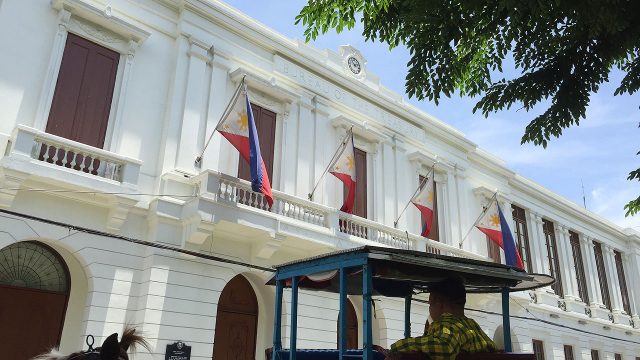Philippine agriculture is at a crossroads. Should the country start commercially producing genetically modified or GM crops such as Golden Rice and BT eggplant? Or should it wait until more comprehensive scientific data are available to prove that such crops are truly safe to propagate and consume, and that they pose no threat to the environment?
Recently, the Court of Appeals favored a petition by environmental groups opposed to GM crops. It stopped the commercial propagation and field testing of Golden Rice and BT eggplant until further safety and environmental assessments were conducted on them. Environmental and farmer groups claimed that GM crops still posed risks to health and the environment.
Golden Rice has been going through research and development at the International Rice Research Institute in Los Baños, Laguna for over 20 years. In fact, it has undergone field testing already, and had been cleared for commercial propagation starting 2023. But those opposed to it claim that despite all the research done thus far, there was not enough data to prove that it was truly safe to propagate and eat.
And those opposed to GM crops may be correct.
But the court decision leaves everything hanging. How much research and data are enough to prove the safety of GM crops? Who is to say whether such data are valid? Until when should the government wait? What type of data, and how much, would satisfy those opposed to GM crops as well as the court?
At the end of the day, we will never conclusively know whether GM crops such as Golden Rice and BT eggplant are completely safe to eat, and will not pose any threat to the environment, until we start commercially growing them and consuming them. The question is, are we willing to take that risk?
We never knew if COVID-19 vaccines were all completely safe when we started distributing them in 2020. But, for COVID, despite the risks, countries went ahead with making new vaccines available because of the need of the times. In a way, we may also have to take similar risks with GM crops, given the unpredictable impact of climate change on agriculture, the growing population, and the internal and external risks to Philippine food security.
Globally, the debate over the use of GM crops will continue, deliberating how to best balance potential health benefits against environmental and safety concerns. At this point, I believe, it is a question of whether we as a country are prepared to take the risk and to deal with the consequences.
The Marcos II Administration wants the country to achieve rice self-sufficiency by 2027, with the country producing all its rice needs and not having to import from abroad. But, as I have noted in previous columns, rice self-sufficiency has been a government objective for more than 60 years now. And all this time, we have not been consistently meeting that target.
In 2021, the rice self-sufficiency ratio went down to 81.5% from 85% the year before, requiring the country to import larger quantities of rice. Data indicates that since the late 1960s, farm yields have increased substantially as we cultivated more high-yielding rice varieties, with average productivity reportedly increasing from 1.23 metric tons per hectare in 1961 to 3.59 metric tons per hectare in 2009. The area under irrigation also grew from under 500,000 hectares in the mid-1960s to about 1.5 million hectares in 2009.
But self-sufficiency in rice production remains unlikely given the rate we have been losing land to development, seemingly stagnating yields, and given that farmers are now a dying breed. Data from the Philippine Statistics Authority indicate that in second quarter 2018, the harvested area for rice fell to 939,790 hectares, from 947,190 million hectares the year before. Yields have also reportedly remained flat in the second quarter at 4.38 tons per hectare.
A more important factor, to me, is that the population is now over 108 million people, and it seems that food consumption growth has been outpacing harvest growth, resulting in a supply gap. This is where importation plays a more crucial role, and the right timing in importation and distribution is key to ensuring supply and price stability.
But considering the rate of development, and the rate of population growth, it is not likely for the trend of supply gaps to disappear or to reverse any time soon. In 1960, there were only 27 million of us. Today, we are more than 108 million. The rate of population growth from the 1960s to the 1980s was about one million per year, but since the 1990s it has been about 1.6 million annually.
In 2013-2017, rice production averaged 12.019 million metric tons (MT) annually, but consumption averaged at a higher rate of 12.850 million MT. The resulting supply gap made it necessary for us to import rice during the period. In 2022, palay (unmilled rice) production was 19.76 million MT. It was at a record high of 19.96 million MT in 2021. In 2022, demand forced us to import a record high 3.8 million MT of rice. In 2021, despite the record harvest, we still imported 2.7 million MT of rice.
Simply put, with the way things are, despite our best harvest in any given year, importation is still necessary. Unless the average annual agricultural sector growth of 1.1% becomes significantly higher than the average population growth of 1.8%. Otherwise, agriculture will always have to play catch up just to meet the food needs of a growing population.
And while GM crops like Golden Rice and BT eggplant may not necessarily boost harvests, for sure they can help improve crop quality. Golden Rice is biofortified with vitamin A. It was developed primarily to address nutritional deficiencies among the population, particularly children. The adverse impact of vitamin A deficiency is on eyesight, which directly impacts education. Golden Rice was seen as significantly reducing vitamin A deficiency in the country, especially among children.
Along with BT eggplant, both crops are also meant to address the need for sturdier varieties that can help mitigate the impact of weather and pestilence on farming and food production. But those who petitioned the court insist that the potential environmental and health risks still outweigh these benefits, unless science can comprehensively prove otherwise.
In short, they claim that the government and researchers have not done enough, and have not produced enough data to prove that GM crops are safe to produce and consume. Until then, and the court agreed, Golden Rice and BT eggplant will just have to wait. The problem with this situation is that nobody knows how long that wait will be.
Meantime, climate continues to change, and varying weather patterns continue to impact farming. Population growth continues to outpace agriculture growth, food security remains uncertain, and Vitamin A deficiency — and its impact on children and their education — persists. Golden Rice, after 20 years, finally presented itself as a golden opportunity. But, it seems, it’s an opportunity that will be missed.
Marvin Tort is a former managing editor of BusinessWorld, and a former chairman of the Philippine Press Council
matort@yahoo.com












